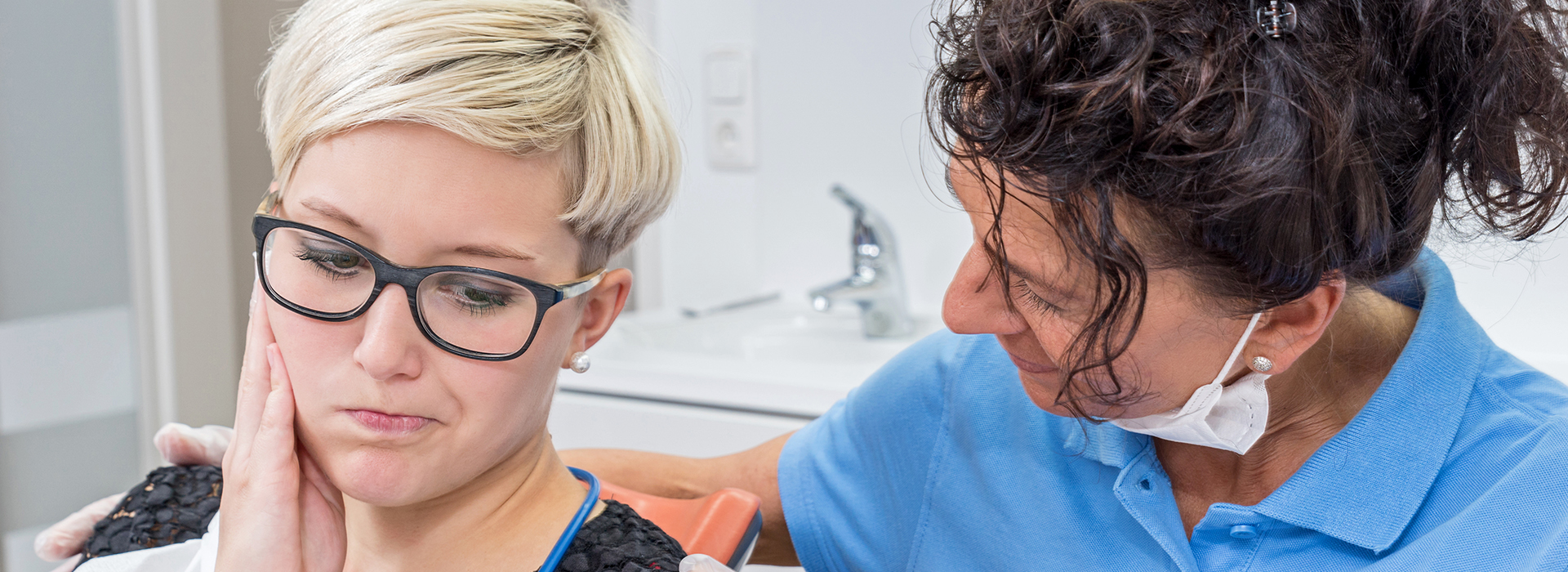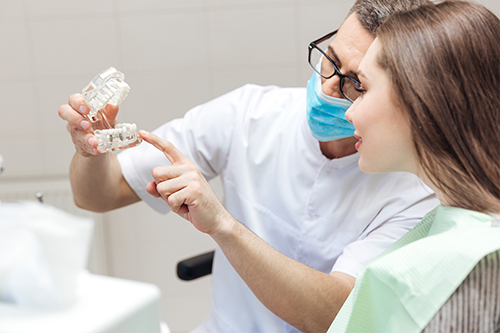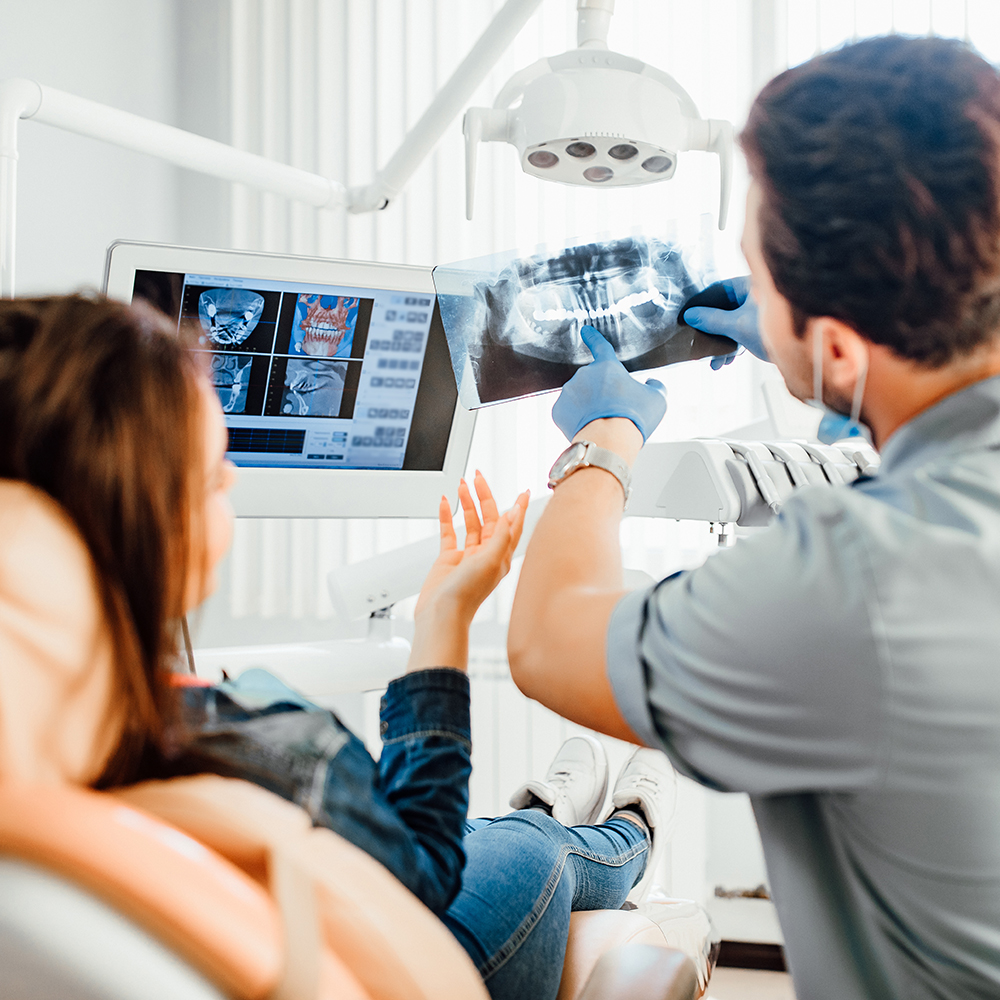
Dental pain and injury range from inconvenient to time-sensitive. A persistent, severe toothache, obvious infection, uncontrolled bleeding, or a tooth that’s been knocked out are clear signs that immediate attention is needed. Even seemingly minor issues — a small chip that exposes dentin, a loose crown, or sudden swelling — can quickly progress and lead to more complex problems if left untreated.
Knowing which signs to act on helps protect your long-term oral health. Look for intense or increasing pain, spreading swelling, fever accompanying oral symptoms, or any wound that won’t stop bleeding. If you or a family member experiences trauma to the mouth from a fall, sports injury, or accident, treating the injury quickly can make the difference between saving a tooth and losing it.
It’s also important to consider the context: a painful tooth in someone with a history of root canal treatment, extensive restorations, or immune system concerns should be evaluated promptly. Timely care reduces the chance of complications, shortens recovery time, and increases the likelihood of preserving natural tooth structure.
When an emergency occurs, calm and simple actions can stabilize the situation until professional care is available. For a knocked-out tooth, gently rinse the root with water (do not scrub), reinsert it if possible, or keep it moist in milk or saline and seek immediate care. For a fractured tooth, collect any large fragments and rinse the mouth with warm water; an ice pack applied to the outside cheek can control swelling and pain.
In cases of dental pain, over-the-counter analgesics can provide temporary relief; follow the medicine’s directions and avoid placing aspirin directly on gum tissue. Rinsing with warm salt water helps cleanse the area and may reduce mild inflammation. If bleeding persists after applying gentle pressure with clean gauze, continue pressure and seek urgent professional attention.
If swelling is severe, spreading, or accompanied by difficulty breathing or swallowing, treat the situation as an urgent medical concern. Infection in the mouth can progress quickly and affect areas beyond the jaw, so don’t delay when systemic symptoms appear. Keeping a clear description of how the problem began will help the dental team triage and begin appropriate treatment faster.
When you arrive for emergency treatment, the first priority is a focused assessment to determine severity and immediate risk. We start by reviewing your symptoms and the events leading up to the problem, then perform an oral exam to check for swelling, broken teeth, damaged restorations, and signs of infection. This evaluation guides urgent steps to stabilize the patient and reduce pain.
Diagnostic tools such as digital radiography and intraoral imaging allow the clinician to see beneath the surface, identifying root fractures, abscesses, or underlying decay that might not be visible on the outside. These technologies speed up diagnosis and support precise treatment decisions, helping to preserve more of the natural tooth when possible.
From there, the clinical team develops a prioritized care plan: immediate interventions to control pain and infection, followed by restorative steps to repair damage or replace lost structure. For patients with medical complexities or airway concerns, coordination with other healthcare providers ensures safe, comprehensive care. Throughout, the goal is to act quickly while keeping patient comfort and long-term outcomes at the forefront.
Many urgent dental problems can be resolved without removing the tooth. For chips and small fractures, dental bonding restores the tooth’s shape and looks natural, protecting inner layers from sensitivity and decay. When a filling or crown has come loose or been lost, we can often replace or repair the restoration to restore function and prevent further damage.
If decay or trauma has reached the tooth’s pulp (the nerve and blood supply), root canal therapy can remove infected tissue and allow the tooth to be preserved. This procedure is highly predictable and relieves pain while saving the natural tooth. In many cases, a crown will be recommended after root canal treatment to strengthen the tooth and restore chewing ability.
When infection has caused an abscess or swelling, draining the site and starting measures to control the infection are immediate priorities. Antibiotics may be prescribed when appropriate for spreading infection or systemic symptoms, and subsequent definitive care addresses the tooth’s structural issues. For cases where a tooth cannot be saved due to severe damage or disease, extraction is performed with attention to comfort and preparation for replacement options.
Modern tooth-replacement solutions — from single implants to fixed bridges and removable prostheses — provide reliable pathways to restore a complete, functional smile after an extraction. Dental implants in particular recreate a tooth’s root support and help preserve jawbone health over time, making them a durable long-term choice for many patients.
After emergency care, following post-treatment directions is essential for a smooth recovery. Manage discomfort with recommended medications and soft foods, maintain gentle oral hygiene to prevent infection, and attend follow-up visits so the clinical team can monitor healing and finalize restorative work. Timely completion of recommended treatment reduces the risk of further complications.
Preventing future emergencies involves both home habits and regular professional care. Wearing protective gear like a mouthguard during sports, addressing grinding or clenching with night guards, and keeping up with routine exams and cleanings help uncover small problems before they become urgent. Early intervention for decay, loose restorations, or emerging periodontal concerns reduces the chance of emergency events.
Education is another important layer of prevention. Understanding the early warning signs of infection, how to protect a loose crown temporarily, and safe steps to take after oral trauma empowers patients and caregivers to respond effectively. When preventive measures are combined with attentive follow-up, most painful emergencies can be minimized or avoided altogether.
At Flossophy Dental, our team is committed to providing calm, evidence-based emergency care that prioritizes your comfort and long-term oral health. If you’re facing a toothache, injury, or any urgent dental concern, contact us to arrange prompt evaluation and treatment. Reach out for more information or to discuss how we can help you restore comfort and function.


Pain is your body's way of signaling that something is not quite right and though there are many reasons for oral pain, one of the most common complaints and reasons for seeking urgent dental care is a toothache. Whether you simply need a dental filling, a crown, or require a root canal procedure to save your tooth, we'll alleviate your discomfort and restore the look and function of the involved tooth.

Dental trauma can result in a defect as minor as a small chip in tooth enamel to a more extensive and painful crack or fracture. With sufficient force, a tooth can even be displaced or completely knocked out of its socket. With prompt emergency care, many injured teeth can be restored and saved.

The last teeth in your mouth to develop, wisdom teeth often do not have enough room to fully erupt or may be positioned in the wrong direction. These issues can affect your dental health as well as overall well-being. Our office provides skilled care to address the complications caused by problematic wisdom teeth.

A broken or lost dental prosthesis or restoration can cause embarrassing gaps in your smile as well as compromise your ability to eat and speak with ease. If you've lost or broken a dental filling, denture, crown, or other dental appliance, you can rely on our office to perform a prompt repair or provide a durable and cosmetically pleasing replacement as quickly as possible.
At the office of Flossophy Dental, emergency appointments are always available. Of course, in addition to providing top treatment for dental emergencies, we also welcome patients searching for high quality and affordable care. We offer a complete range of the latest and best cosmetic and dental services for every member of your family.
If you are suffering from a toothache or have sustained a dental injury, it is important to visit the dentist as soon as possible before more serious complications arise. Whether your dental emergency is painful, if it affects the appearance of your smile, or if you suspect that an infection is present, our office will make every effort to see you as promptly as possible for care.
At the office of Flossophy Dental, we treat your dental emergency as our top priority. Our caring team will respond to your emergency call right away, making sure you get the gentle, state-of-the-art care you need without delay.
As your trusted emergency dentist in Bourbonnais, we provide the highest quality of care to mitigate the stress, anxiety, and discomfort of dental problems. Our dedicated team will help you start feeling better as soon as we receive your emergency call.
At the office of Flossophy Dental, we provide skilled and experienced care to effectively resolve a broad range of dental emergencies, restoring a patient's oral health while protecting their overall wellbeing.
However, even so, specific dental emergencies pose significant threats to one's health. These situations require immediate, emergency room care. Serious and potentially life-threatening dental emergencies include significant oral and facial trauma such as jaw fractures, deep wounds or lacerations to the face and mouth, an abscess or infection that causes widespread facial or submandibular swelling, or affects breathing and swallowing.
At the office of Flossophy Dental, we provide prompt, skilled, and experienced care to address dental emergencies. We understand that finances are always a concern and do our best to provide options in care that are both affordable and respect your budget.
Once we've had the opportunity to examine your smile, we can give you a clear picture of any existing dental issues, along with a quote for what the cost of treatment will be. The cost of care all depends upon the extent and complexity of issues affecting the health or appearance of your smile and the types of procedures that are required.
To help alleviate any additional stress or delay, you can count on our staff to work with you to optimize coverage for your dental care and to minimize your out-of-pocket expenses. For patients without insurance, we strive to make things easier as well! We invite you to visit our financial information page or speak to an expert in our business office.
Dental emergencies are often painful and debilitating experiences. For this reason it's important to have an emergency dentist in Bourbonnais, who welcomes patients with urgent dental needs while providing the prompt care required to restore oral health.
Here are just some of the reasons why so many patients choose our office for emergency dental care and to meet their family's dental needs:
We're dedicated to helping patients enjoy good oral health and beautiful smiles. We look forward to helping you keep your smile in tip-top condition. You can rest assured that our highly skilled office team will provide you the highest quality of state-of-the-art dental care and have you smiling again in no time!
To make an appointment or for more information on our office and the many state-of-the-art services we provide, give us a call today.
Dental emergencies include situations that cause severe pain, uncontrolled bleeding, visible infection, or traumatic injury such as a tooth that has been knocked out. Even issues that seem minor, like a chip exposing dentin, a loose crown, or sudden swelling, can escalate quickly and require prompt attention. Patients should treat rapidly worsening pain or any wound that won’t stop bleeding as urgent concerns.
Context matters: a painful tooth in someone with prior root canal treatment, extensive restorations, or immune system compromise deserves earlier evaluation. Signs that an infection may be spreading — increasing swelling, fever, or swollen lymph nodes — warrant fast assessment. Quick action reduces the risk of complications and improves the chances of saving natural tooth structure.
If a permanent tooth is completely knocked out, try to locate it and handle it by the crown only; do not scrub the root. Rinse the tooth gently with water if dirty, avoid drying it, and attempt to reinsert it into the socket only if you can do so without force. If reinsertion is not possible, keep the tooth moist by placing it in milk, saline, or the patient’s saliva and seek immediate care.
Time is critical for a knocked-out tooth: the best chance for reattachment is generally within the first hour. Bring the tooth and a clear account of how the injury occurred to the dental team so they can act quickly. Even when reinsertion isn’t possible, prompt treatment may enable other restorative options that preserve appearance and function.
For severe tooth pain, start with gentle measures that reduce discomfort until you can be evaluated. Rinse the mouth with warm salt water to cleanse the area, take an over-the-counter analgesic according to package directions, and use an ice pack on the cheek to reduce external swelling. Avoid placing aspirin directly on gum or tooth surfaces because it can irritate soft tissue.
If the pain is accompanied by fever, spreading swelling, or difficulty breathing or swallowing, seek immediate medical attention as these may be signs of a spreading infection. Keep a clear record of when the pain began and any events that preceded it to help the clinician diagnose the cause more quickly. Prompt evaluation helps determine whether root canal therapy, drainage, or another intervention is needed to relieve pain and treat the underlying problem.
After a tooth fracture, collect any large fragments and rinse the mouth gently with warm water to remove debris. Apply a cold compress to the outside cheek to control swelling and use over-the-counter pain relief as needed, following label directions carefully. If an edge is sharp and irritating the tongue or cheek, cover it temporarily with dental wax or a piece of sugarless gum until you can be seen.
Avoid chewing on the affected side and stick to soft foods to prevent further damage. Bring any fragments to your appointment because reattachment is sometimes possible and conserves natural tooth structure. Early evaluation allows the dental team to recommend conservative restorations like bonding or crowns when appropriate to restore function and aesthetics.
Facial swelling that is increasing in size, accompanied by fever, or causing difficulty breathing or swallowing should be treated as an urgent medical emergency. Oral infections can spread beyond the jaw and compromise the airway or systemic health, so rapid assessment and treatment are essential. Persistent or worsening swelling around a tooth or jaw often signals an abscess that needs professional care.
Initial emergency measures focus on controlling the infection and protecting the airway, which may include drainage, prescription antibiotics when indicated, and pain management. Patients with diabetes, immune suppression, or other medical conditions should seek prompt attention because infections can progress more rapidly. Timely follow-up care addresses the tooth or periodontal issue that allowed the infection to develop.
When patients arrive with urgent concerns, the team performs a focused history and oral examination to determine severity and immediate risks. Clinicians assess pain level, signs of infection, bleeding, and any airway or systemic involvement, then use diagnostic tools such as digital radiography to identify root fractures, abscesses, or hidden decay. These findings guide immediate steps to stabilize the patient and control symptoms.
Prioritized care typically addresses airway and infection first, followed by pain control and stabilization of damaged teeth or restorations. The clinical team develops a short-term plan to relieve symptoms and a definitive plan for restorative or surgical follow-up as needed. For patients with complex medical histories, coordination with physicians ensures safe, comprehensive care during and after emergency treatment.
Many urgent dental problems can be managed without extraction through procedures that relieve pain and preserve tooth structure. Options include dental bonding or temporary crowns to restore chips and protect exposed dentin, reattachment of fragments when feasible, and splinting for teeth loosened by trauma. When the pulp is involved, root canal therapy removes infected tissue and allows the tooth to be retained.
For acute abscesses or spreading infections, clinicians may perform drainage and prescribe antibiotics when appropriate to control the infection. Pain management and short-term restorative measures often precede definitive care such as a full crown or permanent restoration. The immediate goal is to stabilize the situation, relieve discomfort, and plan for long-term function and durability.
Extraction may be necessary when a tooth is too severely fractured, decayed, or infected to be predictably restored, or when advanced periodontal disease has compromised support. The decision to extract is based on clinical examination, radiographic findings, and consideration of the patient’s overall oral health and preferences. Extractions are performed with attention to comfort, local anesthesia, and appropriate post-operative care instructions.
After extraction, the team discusses options to replace the missing tooth if desired, including dental implants, fixed bridges, or removable prostheses. Dental implants recreate root support and help preserve jawbone over time, while bridges and partial dentures offer alternative restorative pathways. Follow-up visits monitor healing and plan definitive restorative care tailored to the patient’s needs.
Many emergencies are preventable through routine care and sensible habits. Wear a properly fitted mouthguard for contact sports, address grinding or clenching with a night guard if advised, and avoid chewing hard objects like ice or non-food items. Regular dental exams and timely treatment of small problems such as new decay or loose restorations greatly reduce the chance of urgent events.
Good daily hygiene — brushing twice, flossing daily, and using fluoride products as recommended — helps prevent decay and gum disease that can lead to emergencies. Discussing lifestyle factors, medication effects, and medical conditions with your dental team allows preventive strategies to be tailored to your needs. Education about early warning signs empowers patients and caregivers to seek care before problems become severe.
Before you arrive, prepare a concise description of the problem, when it began, and any events that caused it, as well as a list of current medications and medical conditions. If a tooth has been knocked out, bring the tooth in milk or saline and avoid touching the root; if possible, bring any fragments or the restoration that was displaced. Having a photo of the injury or recent dental records can also help the clinician assess the situation more quickly.
If you are coming to the office, bring identification and your insurance card if you plan to use benefits, and plan to arrive at our office at 750 Almar Pkwy, Suite 101, Bourbonnais, IL 60914. Existing patients can call (815) 932-5221 for assistance and direction when arranging emergency visits. Clear communication about symptoms and prior dental history helps the clinical team provide efficient, appropriate care.

Ready to schedule your next dental appointment or have questions about our services?
Contacting Flossophy Dental is easy! Our friendly staff is available to assist you with scheduling appointments, answering inquiries about treatment options, and addressing any concerns you may have. Whether you prefer to give us a call, send us an email, or fill out our convenient online contact form, we're here to help. Don't wait to take the first step towards achieving the smile of your dreams – reach out to us today and discover the difference personalized dental care can make.